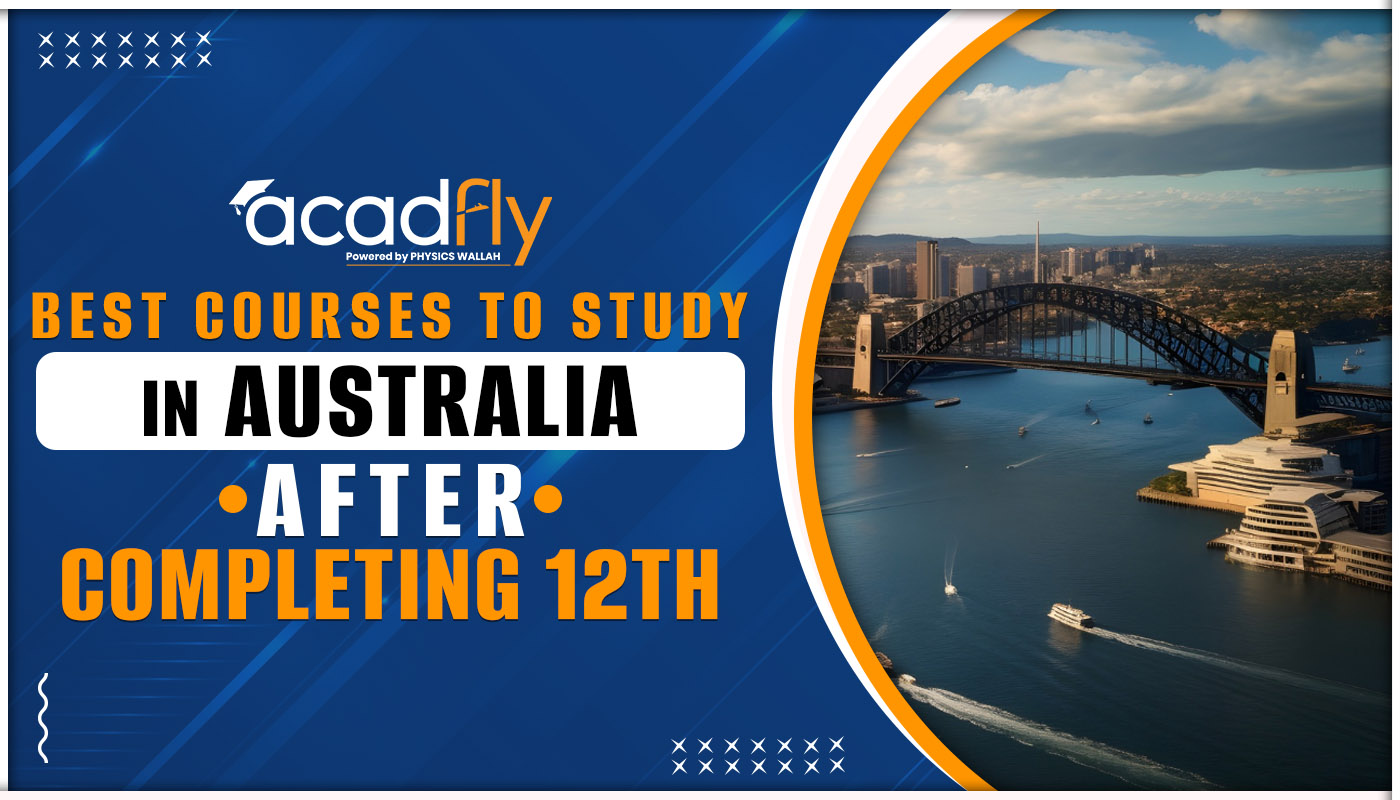
Top MBA Colleges in USA and their Fee Structure
Top MBA Colleges in USA and their Fee Structure - The United States is a popular destination for Indian students seeking a high-quality education and potential professional opportunities. The United States is well-known for having the most top business schools in the world, with 51 globally certified top MBA programmes, which are synonymous with higher education quality.
Whether examining rankings by major publications such as QS or FT (Financial Times), it is clear that the United States has the highest number of top MBA programmes in the world. Using a practical and job-oriented strategy, the United States prepares students with technical skills required for a smooth transition into the corporate world.
Types of MBA in the United States
A differentiating element is the desire to provide chances for Indian students, with many MBA universities in the United States giving scholarships that waive MBA costs for Indian students. There are two types of MBA courses in the United States:
Full-time MBA
Indian students select MBA universities in the United States that provide full-time MBA programmes. It's a two-year MBA programme. In the first year of the MBA programme, students are presented with centre business basics related to current and economic issues.
In the second year, students are expected to pick specific studies according to their preferences, such as marketing, accounting, operations, or finance. Some universities offer one-year MBA programmes.
Part-time MBA
Part-time MBA programmes at MBA institutions in the United States are held in the evenings or on weekends. There is minimal distinction between a full-time and part-time MBA. They both have the same study modules, but it takes 3 - 4 years to finish the entire degree, and Indian students prefer it far less.
Eligibility Criteria for MBA Colleges in the US
To receive admission to MBA programmes in the United States, the following prerequisite MBA criteria must be met:
-
You must have earned a bachelor's degree in any discipline from an accredited educational institution.
-
GMAT or GRE score (must be greater than 600).
-
Letter of recommendation from professor (required)
-
Statement of purpose or internship certificate.
-
Prior to admission, you must pass the eligibility exam and complete all of the college's requirements. You will register at an MBA institution in the United States.
Top MBA Colleges in USA and their Fee Structure
The United States constantly welcomes Indian students and provides them with several possibilities to expand and develop their personalities and talents. Many MBA institutions in the United States offer various specialisations. The following are the most popular MBA colleges in the USA among Indian students:
|
Top B-Schools in the USA |
Tuition Fees |
Cost of Attendance for One Year |
|
Harvard University |
USD 74,910 |
USD 115,638 |
|
Stanford University |
USD 79,860 |
USD 126,465 |
|
Massachusetts Institute of Technology (MIT) |
USD 84,200 |
USD 125,489 |
|
University of Pennsylvania |
USD 87,370 |
USD 124,476 |
|
University of California, Berkeley |
USD 82,059 |
USD 124,041 |
|
Northwestern University |
One-Year MBA: USD 112,336 Two Year MBA: USD 81,015 |
One-Year MBA: USD 162,395 Two Year MBA: USD 120,432 |
|
New York University |
USD 84,180 |
USD 126,874 |
|
The University of Chicago |
USD 80,961 |
USD 122,160 |
|
Columbia University |
USD 84,496 |
USD 127,058 |
|
Yale University |
USD 82,200 |
USD 114,860 |
The University of Chicago
John D. Rockefeller created the University of Chicago, an urban research university. It is one of the best MBA colleges in the United States. The Booth School of Business at the University of Chicago (Booth) provides students with a variety of departments and concentrations.
These include accounting, business analytics, consultancy, e-commerce, economics, entrepreneurship, ethics, finance, and general management.
Other specialist professions include human resource management, industrial management, international business, leadership, manufacturing and technology management, and marketing. This varied range of departments and concentrations illustrates the academic possibilities offered to business education students at Booth.
Northwestern University's Kellogg School of Management
Northwestern University's Kellogg School of Management offers many departments and concentrations to students.
Accounting, economics, entrepreneurship, finance, general management, health care administration, leadership, marketing, not-for-profit management, production/operations management, organisational behaviour, portfolio management, public administration, public policy, real estate, and quantitative studies are some examples.
Aside from conventional lectures, students can participate in more than a dozen research centres, including the General Motors Research Centre for Strategy in Management and the Centre for Executive Women.
Guest speakers frequently share their thoughts with students.
The Wharton School of the University of Pennsylvania
The Wharton School of the University of Pennsylvania (Wharton) has several fields of study, known as departments and concentrations.
-
Accounting, business analytics, e-commerce, economics, entrepreneurship, ethics, finance, general management, health care administration, human resources management, insurance, international business, marketing, production management, public policy, real estate, quantitative analysis/statistics, and operations research are among the departments.
-
Outdoor expeditions called Ventures provide students with hands-on learning outside of the classroom, allowing them to acquire skills such as stress management, critical decision-making, and team leadership.
-
The tours can take students to numerous locations, such as Mount Kilimanjaro in Africa or Antarctica, or sailing in Grenada, offering a week-long chance to practise leadership skills.
-
Students can get practical experience and skills by participating in approximately 150 companies and 25 research institutes around campus.
Massachusetts Institute of Technology (Sloan)
The Sloan School of Management at the Massachusetts Institute of Technology (Sloan) provides a variety of study areas, departments, and concentrations.
-
Accounting, business analytics, economics, entrepreneurship, finance, general management, health care administration, human resources management, industrial management, international business, leadership, manufacturing and technology management, marketing, management information systems, production/operations management, organisational behaviour, supply chain management/logistics, quantitative analysis/statistics, operations research, taxation, and technology are examples.
-
Graduate students study on campus in Cambridge, Massachusetts, but their business education is worldwide in scope.
-
Academic courses are developed with a global perspective, and students have plenty of opportunity to travel and study abroad.
-
The school provides Action Labs in which students may work on real-world challenges at current firms in the United States, China, and India, gaining valuable practical experience.
Yale School of Management
Yale School of Management is a graduate-level business school. It offers full-time MBAs, MBA for Executives, Master of Advanced Management, and PhD degrees. Accounting, entrepreneurship, marketing, and supply chain management are among the varied majors available at Yale's School of Management. The integrated MBA curriculum consists of examining "raw" cases, assessing numerous resources, and completing the Leadership Development Programme. Students complete a global studies requirement, which frequently includes abroad visits.
University of Michigan
At the University of Michigan, students can pursue full-time, part-time, global, or executive MBA programmes, as well as master's and PhD programmes. The Ross School of Business offers departments and concentrations in consulting, finance, marketing, and supply chain management. Ross emphasises action-based learning, encouraging students to ask meaningful questions and build strong leadership abilities.
Stanford University
Stanford is a private institution. It offers a range of courses. Stanford Business School offers a two-year MBA programme that can help you broaden your creativity and improve your abilities.
The Graduate School of Business offers departments and concentrations in accounting, business analytics, economics, finance, marketing, and many other areas. Stanford promotes a broad range of specialisations, from e-commerce to public.
Dartmouth College (Truck)
The Tuck School of Business at Dartmouth College (Tuck) has many areas of study known as departments and concentrations.
-
These include accounting, consulting, e-commerce, economics, entrepreneurship, ethics, finance, general management, health care administration, human resources management, industrial management, international business, leadership, manufacturing and technology management, marketing, not-for-profit management, production/operations management, project management, organisational behaviour, portfolio management, public policy, real estate, supply chain management/logistics
-
Tuck School takes itself in its close-knit campus environment, which welcomes graduate students right away.
-
When students start at Tuck, they are divided into small study groups. More than half of the students opt to live on campus in Hanover, New Hampshire, resulting in a connected and community living and learning environment.
Harvard University
Harvard University's Business School contains many subject areas known as departments and specialisations.
-
These include accounting, consulting, e-commerce, economics, entrepreneurship, ethics, finance, general management, health care administration, human resources management, international business, leadership, manufacturing and technology management, marketing, not-for-profit management, production/operations management, organisational behaviour, portfolio management, public administration, public policy, real estate, sports business, supply chain management/logistics, and
New York University's Stern
New York University's Stern School of Business offers emphases in arts administration, finance, marketing, and technology.
MBA students at Stern are grouped before beginning school, and they shape their two years of study together.
The Stern School offers a wide range of specialisations that prepare students for a variety of business industries.
Columbia Business School
It is thought to be the best MBA college in the United States. It is located in New York City. Its renowned faculty members are on the cutting edge of their areas, ensuring an exceptional educational experience for its students.
Columbia Business School provides majors in consulting, entrepreneurship, healthcare administration, and real estate. A high number of full-time programme alumni find work after graduation, demonstrating the school's ability in linking students with career prospects. Columbia promotes a well-rounded education with multiple majors, preparing students for a variety of professional choices.
Conclusion
The featured MBA institutions in the United States represent some of the best options for Indian students pursuing academic achievement in the previous year. Beginning a trip to study in the United States offers demanding academic pursuits and a rich cultural experience, supporting the development of a genuinely global perspective.
While the expense of getting an MBA at MBA programmes in the United States may appear high, investing in your aspirations will undoubtedly provide positive results. Before making the decision, it is critical to undertake extensive study on cost structures, available scholarships, and other key characteristics of the universities of choice.
FAQs
Q.1. Can I work while studying for an MBA in the United States?
A: Yes, full-time overseas students on an F-1 visa are usually allowed to work on campus during their studies. Some top MBA programmes in the United States also provide optional practical training (OPT) for off-campus jobs relating to the student's subject of study.
Q.2. How do I pick the best MBA institutions in the United States?
A: To choose the best MBA institutions in the United States, thoroughly consider your professional objectives, chosen specialty, and personal preferences. Consider the program's reputation, teacher expertise, alumni success stories, and the school's location. Attend information sessions, speak with current students and alumni, and gather data to make an informed selection.
Q.3. Can I apply to an MBA programme if I don't have any prior business experience?
A: Yes, several top MBA programmes in the United States allow individuals without previous business experience, especially those targeted for early-career professionals. However, needs differ per institution, therefore it's best to verify particular programme prerequisites.
Q.4. What are the benefits of attending a top-ranked MBA programme?
A: Top MBA programmes in the United States frequently offer a prestigious learning environment with recognised instructors, significant alumni networks, and connections to important businesses. Graduates of these programmes frequently benefit from expanded employment choices and higher earnings potential.
Q.5. Are there any options for overseas students to participate in extracurricular activities?
A: Absolutely. Most top MBA programmes in the United States offer an active community with multiple clubs, events, and activities. International students may actively engage, join groups that are relevant to their interests, and network with classmates, all of which contribute to a well-rounded MBA college experience in the United States.
Q.6. What is the typical post-MBA pay for graduates in the United States?
A: Post-MBA earnings vary depending on the sector, region, and individual career trajectories. However, many MBA graduates in the United States see a large rise in earning potential, typically justifying their investment in study. To better grasp pay expectations, it is recommended that you investigate certain sectors and firms.
Frequently Asked Questions










